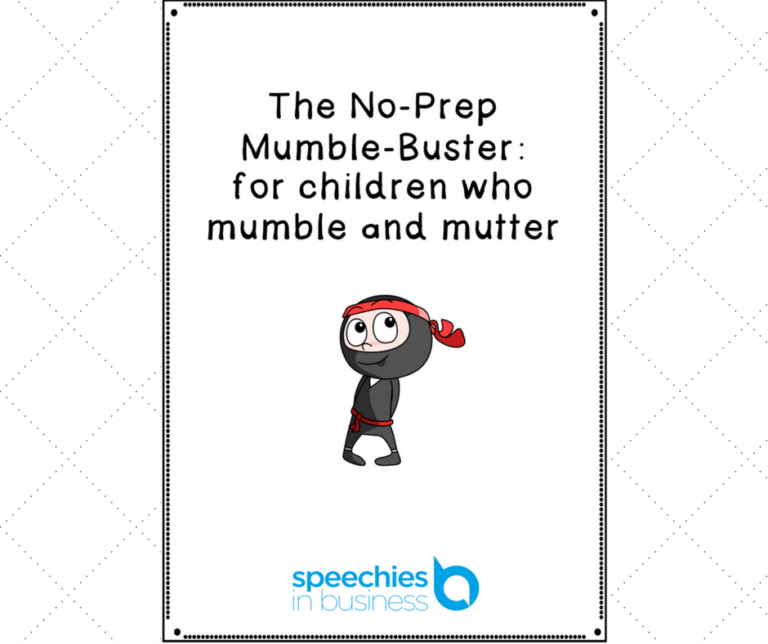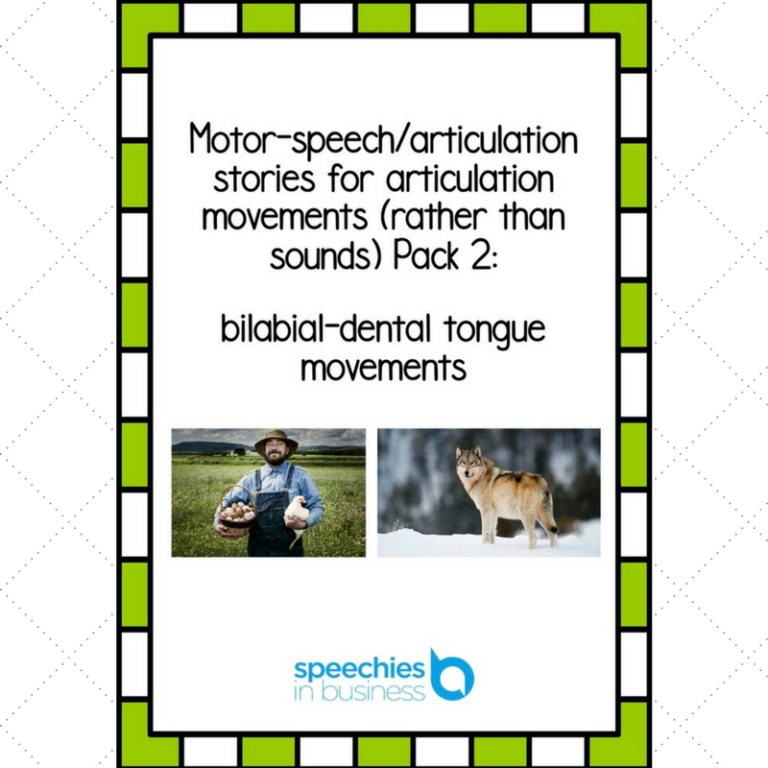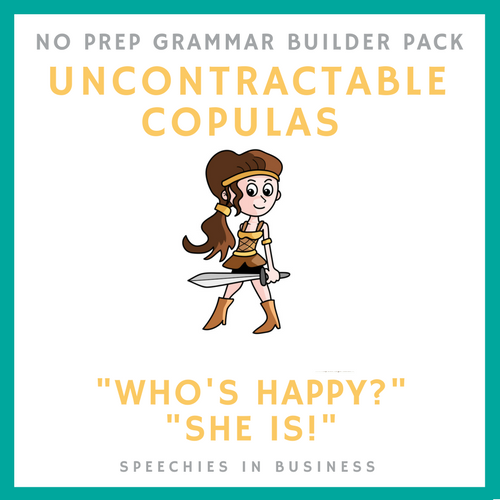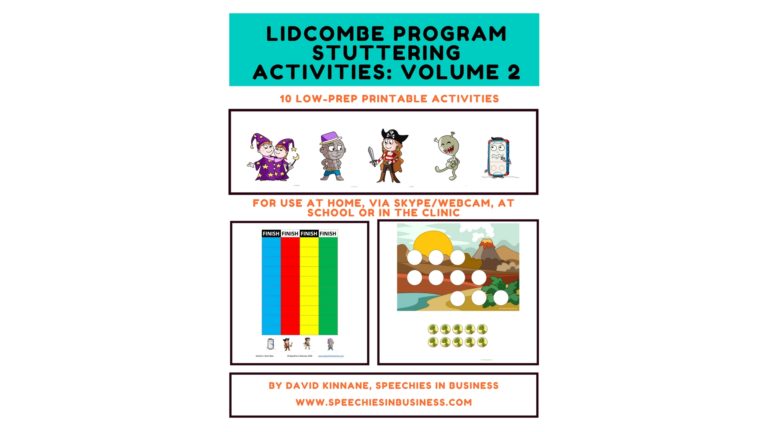Sale!
To celebrate our 100th product launch (!), we’re thrilled to offer 20% off all our downloadable products. Just use the coupon code SALE100 at the checkout. One week only, starting now! Ready, set…

To celebrate our 100th product launch (!), we’re thrilled to offer 20% off all our downloadable products. Just use the coupon code SALE100 at the checkout. One week only, starting now! Ready, set…

“What did you say? Can you say that again?” Mumbling and muttering are significant barriers to good communication and can have a big impact on a child’s social and academic participation. This “no-prep” program is designed to help mumbling children to speak clearly. Featuring a colourful cast of Speech Legends and various play worlds, the…

Sometimes, unclear speech isn’t caused by problems with speech sounds at the single sound level. Many people – children and adults alike – struggle with the movements required to sequence combinations of speech sounds, e.g. to go from a front sound like /t/ or /d/ to a back sound like /g/ or /k/ and back again…

“Who’s happy?” “She is!” Typically-developing children acquire the so-called uncontractible copula “he is/she is/they are” at around 36-42 months. But many children with developmental language disorders and children learning English as a second language do not. Instead, they make errors, e.g.: Question: “Who’s smiling?”…Answer: “She” or “Her”. (Incorrect.) These errors make children sound less intelligent…

When we published The Lidcombe Program for stuttering: my 10 favourite therapy activities back in 2014, we had no idea how popular it would be. Thousands of people from more than 20 countries have downloaded our free resource. Feedback has been overwhelmingly positive, with many parents and speech pathologists reaching out to thank us for sharing…
End of content
End of content
No products in the cart.